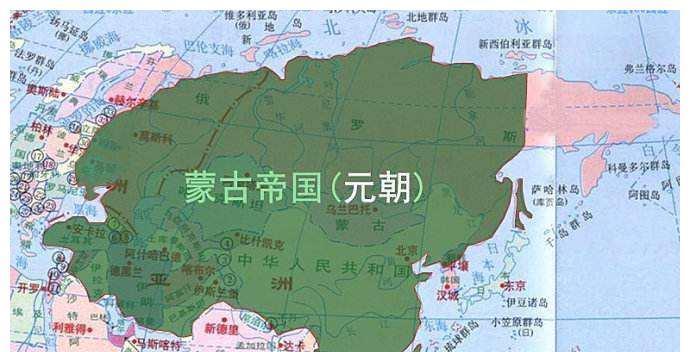The Mongol Empire, a glorious country in history.
His founder Genghis Khan Temujin created one history after another, creating one legend after another. After his death, some of his descendants continued to continue his legend, expanding their territory and continuing the myth belonging to the Mongol Empire; some of them stood under the glory of the Mongol Empire, stagnating, eating and waiting for death.

How much do you know about the Mongol Empire created by Genghis Khan? Do you really understand?
Do you know? Russia, the great power of today, has been ruled by the Mongols for more than 200 years, for two centuries.
And what kind of history is this?
Today, we will unveil the mystery of history and tell the history that happened a hundred years ago.
Mongol rule over Russia lasted for 243 years, from 1237 to 1480.
Ruling Russia was the Golden Horde, one of the four great khanates of the Mongol Empire, established in 1243 by Batu, the eldest son of Genghis Khan's eldest son, Shuchi, after the end of his Western Expedition.
In today's world, Russia is a very influential country, spanning the Eurasian continent, with both Western and Oriental attributes, and is a very special country.
A hundred years ago, who could have imagined that a nation living on the steppe, with no fixed place to live and no guarantee of life, would actually grow step by step, unify the steppe, and in nearly half a century, through three times of the west, spread its pace throughout eurasia and conquer those countries that were once incomparably powerful.
Russia was one of the countries that were conquered by the Mongols.
The rise and expansion of the Mongol Empire, with its epochal significance, changed the world and the destiny of Russia.
From the capture of Kiev by Battus in 1240 AD to the complete defeat of the Mongol army at the Battle of the Ugra River in 1480 AD, the Mongols ruled the plains of Eastern Europe, including Rus' for 240 years.
At that time, Russia could be described as a miserable batch.
Before the Mongols clashed with them, they didn't even know the Mongols, they didn't know anything about them.
The Novgorod Chronicle records that "because of our sins, the tribes which we do not know have come, and no one knows who they are, where they came from —nor what their language is, what race they are, what religion they believe—only God knows, who they are, where they came from."
The year of the conflict was 1223.
In that year, the Mongols had not yet conquered Russia and placed it under their rule.
The Mongols at that time had ambitions and strength.
They crossed the Volga River in 1237 and took Russian cities step by step and occupied Russian lands.
In 1240, the Mongols completely conquered Kiev, and since then, the whole of Russia has been under Mongol rule.
However, after conquering Russia, the Mongols did not incorporate it into their imperial territory, but retained a certain degree of autonomy in Russia, which was a vassal relationship.
However, the Grand Duke of Rus or other princes had to obtain the grace of the Mongol Empire to ascend the throne and be under the supervision of the Khanate.
For the Mongols, as long as Russia can maintain its respect for itself, it will not incorporate it into its own territory and directly administer it.
After all, the Mongol Empire was simply too big...
At the same time, Russia, ruled by the Mongols, also had some connections with the suzerainty, the Yuan Dynasty.
In the 1330s, for example, thirty thousand Russians served in the Yuan Dynasty.
The Mongol Empire, like the later Empire of the Rising Sun, eventually weakened, and later the Mongol rule in Russia ended.
For this 200-year-long reign.
Some Russian scholars believe that the more than 200 years of rule by the Mongols are a disaster in Russian history, one of the main reasons why Russia lags behind other European countries, and even more so, it is also the backwardness of Russia's economy, culture and other aspects. Of course, some Russian experts believe that the more than 200 years that Russia has been ruled by Mongolia have promoted cultural exchanges in Eurasia, provided a broad space for the development of Russian society and culture, and made oriental elements an indisputable part of Russian culture.
What about you? Do you know the direct relationship between the Mongol Empire and Russia?